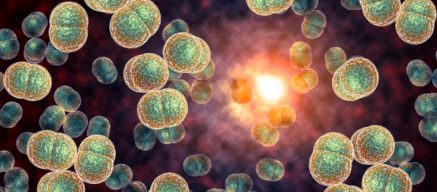
Do you know what the human papilloma virus (HPV) is? Do you know it can cause cancers? In men as well as women? And did you know, here in the UK, someone is diagnosed with an HPV related cancer every 1 hour & 15 minutes?
So, what exactly is HPV and how can you catch it? Here we aim to provide you with all the information you may need:
What is HPV?
HPV stands for human papillomavirus. There are many different types of HPV.
Genital HPV is a very common sexually transmitted infection in men and women with around 80% being infected at some point in their lives. It usually causes no symptoms and goes away by itself, but can sometimes cause serious illness.
How do people get HPV?
HPV is passed on from one person to another through intimate genital-skin contact, usually without the person ever knowing it. The virus enters the body through tiny breaks in the skin.
Condoms offer some but not total protection from HPV, as they don’t cover all of the genital skin. They do offer protection from many other sexually transmitted infections though, and help prevent unwanted pregnancy.
You can be exposed to HPV the first-time sexual activity occurs, from only one sexual partner.
HPV-related cancers and disease
Genital HPV infection can cause cervical, vulva and vaginal cancer in women and penile cancer in men. It can also cause cancers of the anus and mouth/throat and genital warts in both men and women.
What are the symptoms?
High-risk genital HPV has no symptoms. This may be worrying, but if you go for cervical screening (a smear test) when invited, it can find a high-risk HPV virus and changes early, before it develops into cancer.
Low risk HPV (strains 6 & 11) lead to genital warts. Whilst these strains are not linked to cancers, genital warts can be unpleasant and may require medical treatment.
How can I reduce my risk of getting high-risk HPV?
You cannot fully protect yourself against HPV, but there are things that can help:
– The HPV vaccine protects against four types of HPV (types 6, 11, 16 and 18) that cause over 70% of cervical cancers, most HPV related penile cancers, a significant proportion of anal cancers and 90% of genital warts. The vaccine cannot cause cancer or other HPV related illnesses.
– Condoms can help protect you against HPV, but as HPV lives on the skin in and around the whole genital area, they do not cover all the genitals so do not completely get rid of the risk.
– Cervical screening actively tests for HPV and can identify any changes to cervical cells (abnormal cells) early, before they develop.
Our experienced travel health experts are fully trained in providing support and advice on HPV, including administering the HPV vaccine. If you have any concerns about HPV or would like to book in for the HPV vaccine, you can book an appointment at one of our vaccination clinics today.
* We are currently offering HPV vaccines at £155 for 1 dose or £455 for 3 doses when you pay upfront *

Article last reviewed on 25/06/2019 by:
Amanda Yerby RN
Clinical Director for NHS Programmes
Having gained a Bachelor of Nursing degree from the University of South Australia, Amanda worked in acute healthcare, specialising in general medical and emergency care. She has spent the past 14 years specialising in travel health and primary care, gaining extensive experience in childhood and travel immunisations, both within the private sector and the NHS.





